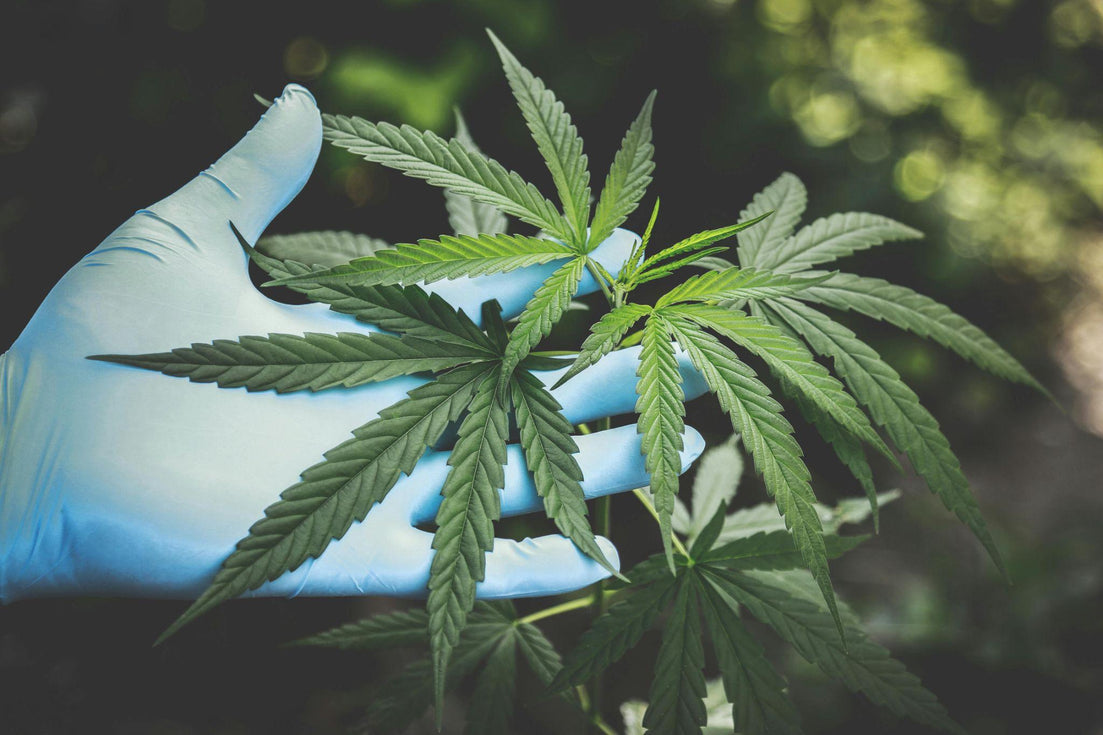Your cart is currently empty.

A high percentage of women will have to deal with breast cancer in their lifetime, making it one of the largest female health concerns on the planet. Current treatment options are limited, expensive, and often come with severe side effects, some of which can be permanent. New research indicates that cannabis could be an effective alternative to these treatments, helping to fight the disease and potentially save lives.
Cannabis Kills Cancer
The National Cancer Institute recently posted positive information regarding marijuana's anti-cancer effects on their website. There are several studies summarized that link cannabinoids found in marijuana to a noticeable reduction in tumor size, effective treatment of symptoms related to chemotherapy, and the actual death of cancer cells in animal models without any harm being done to the normal cells.
Cancer and the Endocannabinoid System
The endocannabinoid system (ECS) is the system in your body that is responsible for cannabis's effect on us. This system functions as a communication highway in your body. It's made up of a series of cannabinoid receptors and the corresponding molecules (endocannabinoids) that attach to and react with the receptors. This system is responsible for the necessary communication throughout our body to maintain optimal health.

PHOTO BY @NBCFAUS
A study conducted in 2012 found that the CB2 receptors are overexpressed in tumor cells. The CB2 receptor is a primary cannabinoid receptor in the body; imbalances pertaining to it and its corresponding endocannabinoids may be responsible for a wide range of illnesses.
Not only does the ECS regulate things like metabolism, sleep, cognitive thought, and appetite, but it also plays a major role in ensuring the overall health of our cells. Cancer, as many of you probably already know, is caused by mutations in the DNA of specific cells. The ECS can actually be a therapeutic target for halting the progression of cancer and maybe even eliminating the tumors altogether.
Marijuana and Breast Cancer
Cancer occurs when normal cells in a specific area of your body mutate and stop following the normal cycle of cell life and death, hence why scientists refer to cancer cells as being immortal. In cancer cells, the DNA is changed so that the cells no longer die; they simply grow and divide over and over again, leading to tumors.

MASTECTOMIES ARE A COMMON TREATMENT FOR BREAST CANCER. THIS BRAVE AND BEAUTIFUL IMAGE IS FROM @MICHELLESRI
Recent research found that the active compounds in cannabis are capable of putting an end to this process, killing tumors. They help the body return to a more balanced state by re-activating programmed cell death, a process scientifically known as apoptosis. Different cannabinoids help fight off cancer in different ways.
While there is a large amount of research still needed, we do know about the following cannabinoids' ability to fight breast cancer:
CBD
In 2011, researchers in Israel found that CBD had the power to inhibit the development of tumors caused by breast cancer. While they are still unsure how or why, the scientists found that CBD helped to facilitate apoptosis. They also found that CBD was able to trigger autophagy as well, which is basically tumor cell self-destruction.
The researchers found that CBD targets breast cancer cells by facilitating both apoptosis and autophagy, meaning that the cannabinoid helps the body kill cancer cells by assisting the own natural process of it in the body.

OIL IS CURRENTLY THE MOST POPULAR FORM OF CBD. PHOTO BY @BADGIRLSUMSUM
In 2007, a study conducted in California found that CBD could inhibit the Id-1 gene, responsible for genetic breast cancer, turning off the trigger which causes aggressive breast cancer cells to grow rapidly.
THC
THC has also been found to produce potent anti-cancer effects. A 2014 study conducted by a Spanish research group determined that THC could also cause cancer cells to die via autophagy, but in a different way than CBD does. THC helps to regulate the cycle of cell life and death by activating cannabinoid receptors which are over-expressed on tumor cells.
Another study from 2014 found that higher doses of THC reduced the size of breast cancer tumors significantly in mice by activating two lesser-known cannabinoid receptors, the CB2 receptor and the GPR55 receptor.
Entourage Effect
While both these cannabinoids have been found to be effective on their own, they're most effective when paired together with each other and the other many cannabinoids found in marijuana.
In a recent study, researchers treated mice with a synthetic cannabinoid known as O-1663, which was found to block the Id-1 gene, like CBD, and activate the CB1 and CB2 cell receptors like THC.

FULL SPECTRUM MEDICINAL MARIJUANA IS THE BEST OPTION FOR TREATING BREAST CANCER WITH CANNABIS THANKS TO THE ENTOURAGE EFFECT. PHOTO BY @PURPLEBUFFAL0
This finding supports the popular scientific theory of the entourage effect. The idea behind the entourage effect is that cannabinoids will have a greater therapeutic value when they're combined than when they're isolated. The molecules work synergistically with one another, producing a cascade of effects, amplifying the medical value of the plant.
Other cannabinoids have been found to have anti-tumor qualities. CBC (cannabichromene) and CBG (cannabigerol) have both shown promise in reducing breast cancer growth. These cannabinoids have been studied far less than THC and CBD, so more research is necessary before the full effects can be known.
The Effects of Chemotherapy
There are several auxiliary benefits to using marijuana as part of your breast cancer treatment plan, mostly in the way of side effect control.
Pain
One major pharmaceutical company is in the process of Stage 3 clinical trials on a cannabis-based drug that could be used to treat cancer pain. GW Pharmaceuticals hopes that their newest drug, Sativex, which has already been approved in countries outside the US for the treatment of Multiple Sclerosis, will be able to hit the market as a treatment for pain cancer patients experience.

CANCER PATIENTS COPE WITH MANY HORRIBLE SIDE EFFECTS THANKS TO THEIR FEW TREATMENT OPTIONS. PHOTO FROM @NATALIE.N.BELL
With or without this drug, marijuana is still prescribed frequently for the treatment of cancer pain, as well as other pains. Its effectiveness has even been compared to that of opioids, which are far more harmful and addictive.
Nausea and Appetite
The FDA has already approved a synthetic form of THC, Marinol, that is prescribed for nausea experienced by patients going through chemotherapy. It's typically reserved as a last resort when other nausea medications have proved ineffective. While it is highly effective in treating extreme nausea, it's not effective in treating any other side effect of cancer treatments.
Cannabinoids like THC and CBN are great appetite stimulants, while THC and CBD are strong nausea suppressants. The fact that these cannabinoids can treat all the symptoms at once, including pain, leads cancer patients to choose medical marijuana in the states where it's legal.
Sleep
Insomnia is a huge problem for many cancer patients. As any stoner knows, Indica strains of marijuana can help to ease insomnia and promote restful sleep. Strains like Afghan Kush and Granddaddy Purp are known for their mellowing, sedative effects; they can help you fall asleep faster and stay asleep longer.

MARIJUANA COULD BE THE MIRACLE CURE CANCER RESEARCHERS HAVE BEEN SEARCHING FOR. PHOTO BY @DOPEDREAMZZZ
Currently, in the United States, there are no clinical trials underway to test the efficacy of cannabinoids as strong cancer treatments. All the research currently available, however, indicates strongly that medical marijuana could be one of our most effective weapons against breast cancer and other forms of cancer. Only time will tell if more research is on the horizon or if better access to medical marijuana will be coming down the pike any time soon.



